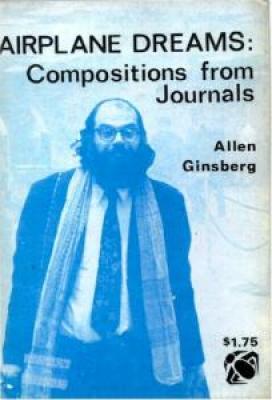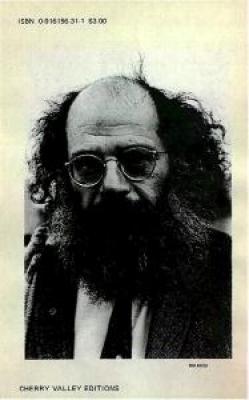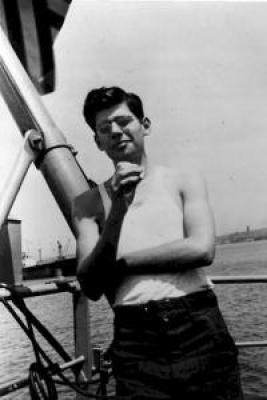Ginsberg was at once one of the major poets of the second half of the twentieth century and a public figure who entreated his country by way of his poetry to realize its full democratic potential. Ginsberg was never actually militant or aggressive. Learned in Zen Buddhism and Western mysticism, his presence exuded rather an expansive and insistent gentleness.
He was born and grew up in New Jersey, but it was the emerging Beat generation in New York that shaped his vision and that he helped to define. He was educated at Columbia University, though his degree was delayed when he was expelled for what would now constitute no more than a prank, placing obscene messages on his grimy dormitory window to draw attention to the need to clean the room. More serious——as he became friends with William Burroughs, Jack Kerouac, and other figures in the Beat literary and drug scene——was his decision to let Herbert Huncke use his dorm room to store the stolen goods he employed to support his heroin habit. In exchange for avoiding prosecution, Ginsberg pleaded insanity and spent eight months in the Columbia Psychiatric Institute.
By then he had worked a series of odd jobs, including service on merchant tankers, but he had also had an auditory vision of William Blake reading his poems aloud. He also soon met and was befriended by William Carlos Williams. Then he was on his way to San Francisco and the 1956 publication of Howl and Other Poems. Buoyed by the publicity accompanying an obscenity trial, "Howl" would become perhaps the most widely known poem of the era. Ginsberg had become a twentieth-century incarnation of Walt Whitman. The mix of moods in his work would remain consistent throughout his career—prophetic, elegiac, ecstatic. He would write triumphant poems of political protest, lamentations about death, celebratory poems about homosexuality, and affirmations of visionary transformation. He chanted his poems to the accompaniment of finger cymbals, sang them with rock groups, and intoned them in a high resonant voice that made his poetry a form of contemporary prophecy.





























